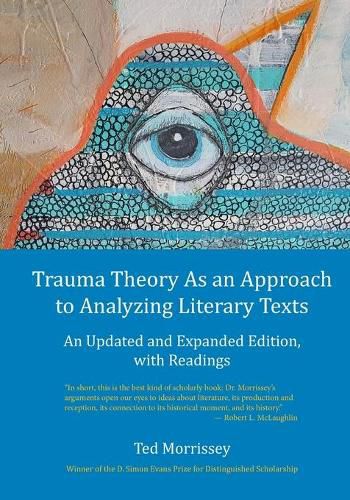Readings Newsletter
Become a Readings Member to make your shopping experience even easier.
Sign in or sign up for free!
You’re not far away from qualifying for FREE standard shipping within Australia
You’ve qualified for FREE standard shipping within Australia
The cart is loading…






Trauma Theory As an Approach to Analyzing Literary Texts investigates the hypothesis that cultural trauma affects a society’s literary production (really, its artistic production as a whole), resulting in a narrative voice we have come to call postmodern since midway through the twentieth century (set in motion, perhaps, by the atomic bombings of Nagasaki and Hiroshima). A theoretical framework is established based on the work of pioneers in the field of psychoanalysis, like Freud and Lacan, and refined by contemporary trauma theorists (Caruth, Di Prete, Whitehead, et al.). In order to bolster the claim that cultural trauma leads to a postmodern narrative style, the Anglo-Saxon Period of English history is examined, and especially the poem Beowulf. Meanwhile, several twentieth-century postmodernists are discussed (Pynchon, Gaddis, Vonnegut, etc.), but especially the work of William H. Gass. In addition to a thorough discussion of literary trauma theory, there is also a chapter on trauma writing, and its practice in the classroom and classroom-like settings. This edition is updated and expanded beyond its related 2016 publication, including a new introduction, notes, and four readings by the author. Special attention is paid to the fiction of William Gass, particularly his novels The Tunnel and Omensetter’s Luck, and the novellas The Pedersen Kid and In the Heart of the Heart of the Country. Like the book’s 2016 counterpart, Trauma Theory As an Approach to Analyzing Literary Texts includes a Foreword by Robert L. McLaughlin, a leading scholar in the field of American postmodernism.
$9.00 standard shipping within Australia
FREE standard shipping within Australia for orders over $100.00
Express & International shipping calculated at checkout
Trauma Theory As an Approach to Analyzing Literary Texts investigates the hypothesis that cultural trauma affects a society’s literary production (really, its artistic production as a whole), resulting in a narrative voice we have come to call postmodern since midway through the twentieth century (set in motion, perhaps, by the atomic bombings of Nagasaki and Hiroshima). A theoretical framework is established based on the work of pioneers in the field of psychoanalysis, like Freud and Lacan, and refined by contemporary trauma theorists (Caruth, Di Prete, Whitehead, et al.). In order to bolster the claim that cultural trauma leads to a postmodern narrative style, the Anglo-Saxon Period of English history is examined, and especially the poem Beowulf. Meanwhile, several twentieth-century postmodernists are discussed (Pynchon, Gaddis, Vonnegut, etc.), but especially the work of William H. Gass. In addition to a thorough discussion of literary trauma theory, there is also a chapter on trauma writing, and its practice in the classroom and classroom-like settings. This edition is updated and expanded beyond its related 2016 publication, including a new introduction, notes, and four readings by the author. Special attention is paid to the fiction of William Gass, particularly his novels The Tunnel and Omensetter’s Luck, and the novellas The Pedersen Kid and In the Heart of the Heart of the Country. Like the book’s 2016 counterpart, Trauma Theory As an Approach to Analyzing Literary Texts includes a Foreword by Robert L. McLaughlin, a leading scholar in the field of American postmodernism.